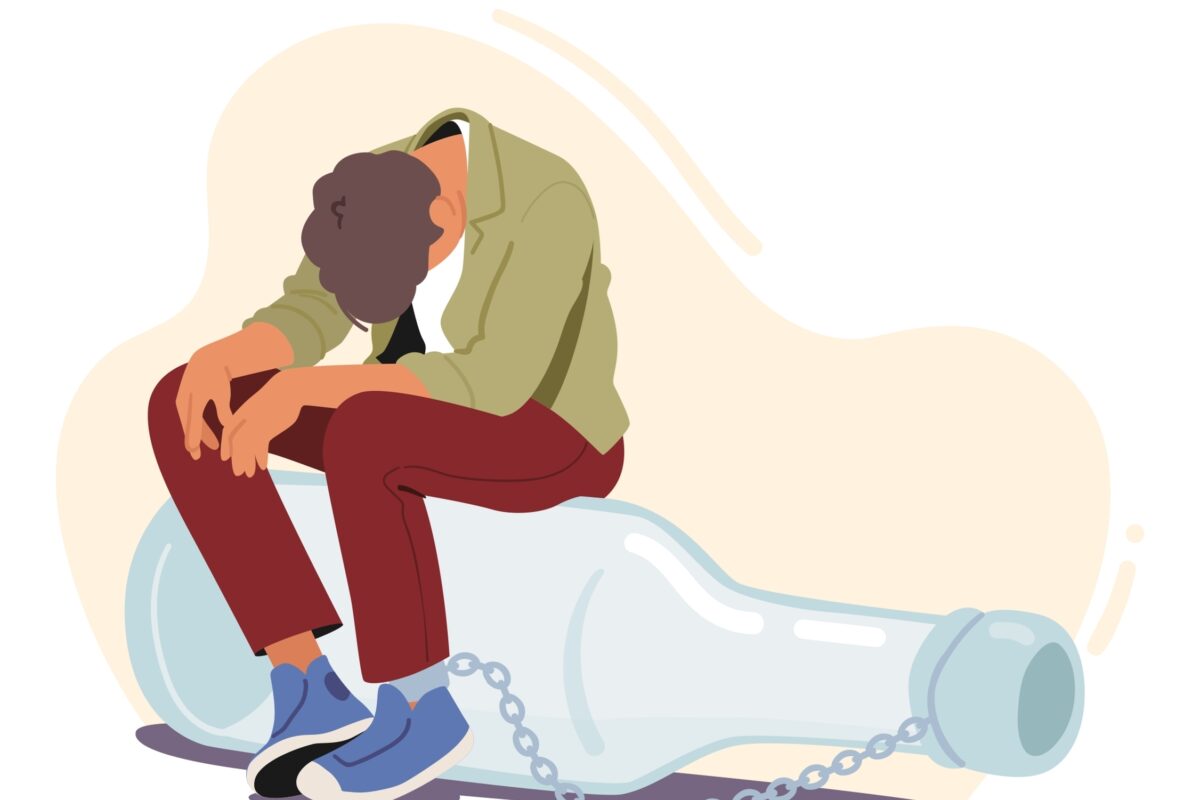Are you struggling with addiction but worried about taking time off work to attend rehab? You’re not alone. Many individuals wonder: “Can I go to rehab and still work?” The good news is, the answer is often yes.
Going to rehab doesn’t necessarily mean you have to put your career on hold. With the right support and resources, it is possible to seek treatment for substance abuse while maintaining your job.
In this article, we will explore the various options available for individuals who want to attend rehab without jeopardizing their livelihood. From outpatient treatment programs to flexible work arrangements, we will provide insights into how you can balance work and recovery.
Understanding Addiction and the Need for Rehab
Addiction is a complex disease that affects millions of individuals worldwide. It can have a profound impact on all aspects of life, including work. Substance abuse can lead to decreased productivity, increased absenteeism, and impaired decision-making, all of which can jeopardize your career.
Recognizing the need for rehab is crucial in overcoming addiction and achieving long-term recovery. Rehab provides a structured environment where individuals can receive professional help and support to address their substance abuse issues. It offers a range of therapeutic interventions, including counseling, group therapy, and medication-assisted treatment, tailored to meet individual needs.
Seeking help through rehab is not only beneficial for your personal well-being but also for your professional life. By addressing your addiction, you can regain control over your life and improve your work performance.
The Impact of Addiction on Work Performance
Addiction can significantly impact an individual’s ability to perform well at work. Substance abuse can lead to cognitive impairments, memory problems, and decreased concentration, making it challenging to focus on tasks and meet deadlines. Additionally, individuals struggling with addiction may experience mood swings, irritability, and conflicts with colleagues, further affecting work relationships.
The consequences of addiction on work performance can range from minor issues, such as missed deadlines or decreased productivity, to more severe consequences, such as job loss or damaged professional reputation. It is essential to recognize the negative impact addiction can have on your career and take proactive steps to seek help.
The Importance of Seeking Help and Going to Rehab
If you’re struggling with addiction, seeking help is paramount to your well-being and future success. Going to rehab can be a life-changing decision that allows you to break free from the cycle of addiction and regain control over your life.
Rehab provides a safe and supportive environment where you can learn coping strategies, develop relapse prevention skills, and address the underlying issues contributing to your addiction. It offers a comprehensive treatment approach that considers your physical, psychological, and social needs.
By seeking help and going to rehab, you are investing in your future. You are taking a proactive step towards recovery and building a solid foundation for long-term sobriety. It is a brave and courageous decision that demonstrates your commitment to your health and well-being.
Legal Protections for Employees Seeking Rehab Treatment
Employees seeking rehab treatment are protected by various laws and regulations to ensure they are not discriminated against or penalized due to their addiction or need for treatment.
The Family and Medical Leave Act (FMLA) provides eligible employees with up to 12 weeks of unpaid leave for medical reasons, including substance abuse treatment. This allows individuals to take time off work to attend rehab without fear of losing their job.
Additionally, the Americans with Disabilities Act (ADA) protects individuals with disabilities, including those recovering from substance abuse, from discrimination in the workplace. Employers are required to provide reasonable accommodations to individuals seeking treatment, such as modified work schedules or time off for therapy sessions.
Understanding your legal rights and protections can help alleviate concerns about job security and provide peace of mind as you navigate the process of going to rehab while still working.
Finding a Rehab Program That Fits Your Work Schedule
When searching for a rehab program that accommodates your work schedule, it’s essential to consider various factors. Start by assessing your work commitments, including your typical work hours and any upcoming deadlines or projects. This will help you determine the level of flexibility you require from a rehab program.
Consider programs that offer evening or weekend treatment options, as well as those that provide online or telehealth services. These alternatives can be particularly beneficial if you have limited flexibility in your work schedule or if you live in a remote area without easy access to in-person treatment.
Reach out to different rehab facilities and discuss your specific needs and work schedule. Many programs are willing to work with you to create a personalized treatment plan that accommodates your work commitments. Ask about their flexibility and whether they have experience supporting individuals who continue working during treatment.
Communicating With Your Employer About Your Decision to Go to Rehab
Open and honest communication with your employer is crucial when making the decision to go to rehab while still working. While it may feel challenging to disclose your addiction and treatment plans, sharing this information can lead to a more supportive and understanding work environment.
Before approaching your employer, educate yourself about the legal protections in place for employees seeking rehab treatment. Familiarize yourself with the Family and Medical Leave Act (FMLA) and any company policies regarding medical leave and accommodations for addiction treatment.
Choose an appropriate time to discuss your situation with your employer.
Schedule a private meeting and be prepared to provide information about your treatment plan, the expected duration of your absence, and any necessary accommodations or adjustments needed during your recovery.
Highlight your commitment to your job and explain how seeking treatment will benefit both your personal and professional life. Emphasize your determination to maintain your work responsibilities to the best of your abilities while attending rehab.
Balancing Work Responsibilities and Rehab Commitments
Balancing work responsibilities with the commitments of rehab can be challenging but not impossible. It requires careful planning, effective time management, and a commitment to prioritizing your recovery.
Start by creating a schedule that accommodates both your work and treatment obligations. Clearly define your work hours and communicate them to your treatment team, ensuring that therapy sessions and group meetings are scheduled accordingly.
Take advantage of technology to stay connected and engaged in your work while in rehab. Use email, video conferencing, or project management tools to stay in touch with your colleagues and ensure that work tasks are being addressed.
Delegate tasks and responsibilities whenever possible. Communicate with your supervisor or colleagues about your situation and ask for their support in redistributing workload during your absence. This will help alleviate stress and ensure that work continues smoothly in your absence.
Tips for Maintaining Productivity While in Rehab
Maintaining productivity while in rehab requires focus, discipline, and effective time management. Here are some tips to help you stay on track with your work responsibilities:
- Set clear goals: Identify your most important tasks and prioritize them. Set specific, achievable goals for each day to stay focused and motivated.
- Minimize distractions: Create a dedicated workspace free from distractions. Turn off notifications on your phone or computer and establish boundaries with fellow residents to minimize interruptions.
- Practice time management: Break down your work tasks into smaller, manageable chunks. Use time-blocking techniques to allocate specific time slots for different tasks and ensure you stay on track.
- Take breaks: Allow yourself short breaks throughout the day to recharge and avoid burnout. Use this time to engage in self-care activities, such as meditation or exercise, to boost your overall well-being.
- Seek support: Reach out to your treatment team or fellow residents for support and encouragement. They can provide valuable insights, guidance, and accountability to help you stay productive.
Remember, maintaining productivity while in rehab is important, but your recovery should always be the top priority. Be kind to yourself and recognize that it’s okay to ask for help or take additional time off if needed.
Returning to Work After Rehab – Transitioning Back and Setting Boundaries
Returning to work after completing rehab is an important milestone in your recovery journey. It marks the beginning of a new chapter, where you can apply the skills and tools you’ve learned in treatment to your professional life.
Before returning to work, take some time to reflect on your experience in rehab and set realistic expectations for yourself. Recognize that the transition back to work may come with challenges, and it’s important to be patient and compassionate with yourself as you adjust.
Communicate with your employer about your return-to-work plans and any necessary accommodations or adjustments you may need. Discuss the possibility of a phased return, where you gradually increase your work hours to ease the transition.
Set boundaries and establish a self-care routine to maintain your sobriety and overall well-being while at work. Prioritize self-care activities, such as regular exercise, healthy eating, and stress management techniques, to support your recovery.
Utilize the coping strategies and relapse prevention skills you learned in rehab to navigate work-related stressors and triggers. Reach out to your support network, whether it be fellow recovering individuals, a sponsor, or a therapist, for guidance and encouragement during this transition period.
Remember, recovery is a lifelong journey, and maintaining your sobriety requires ongoing effort and commitment. By prioritizing your well-being and seeking support, you can successfully navigate the challenges of balancing work and recovery.
Don’t let the fear of losing your job prevent you from seeking the help you need. With the right resources and support, you can go to rehab and still work, paving the way for a healthier, more fulfilling life both personally and professionally.





